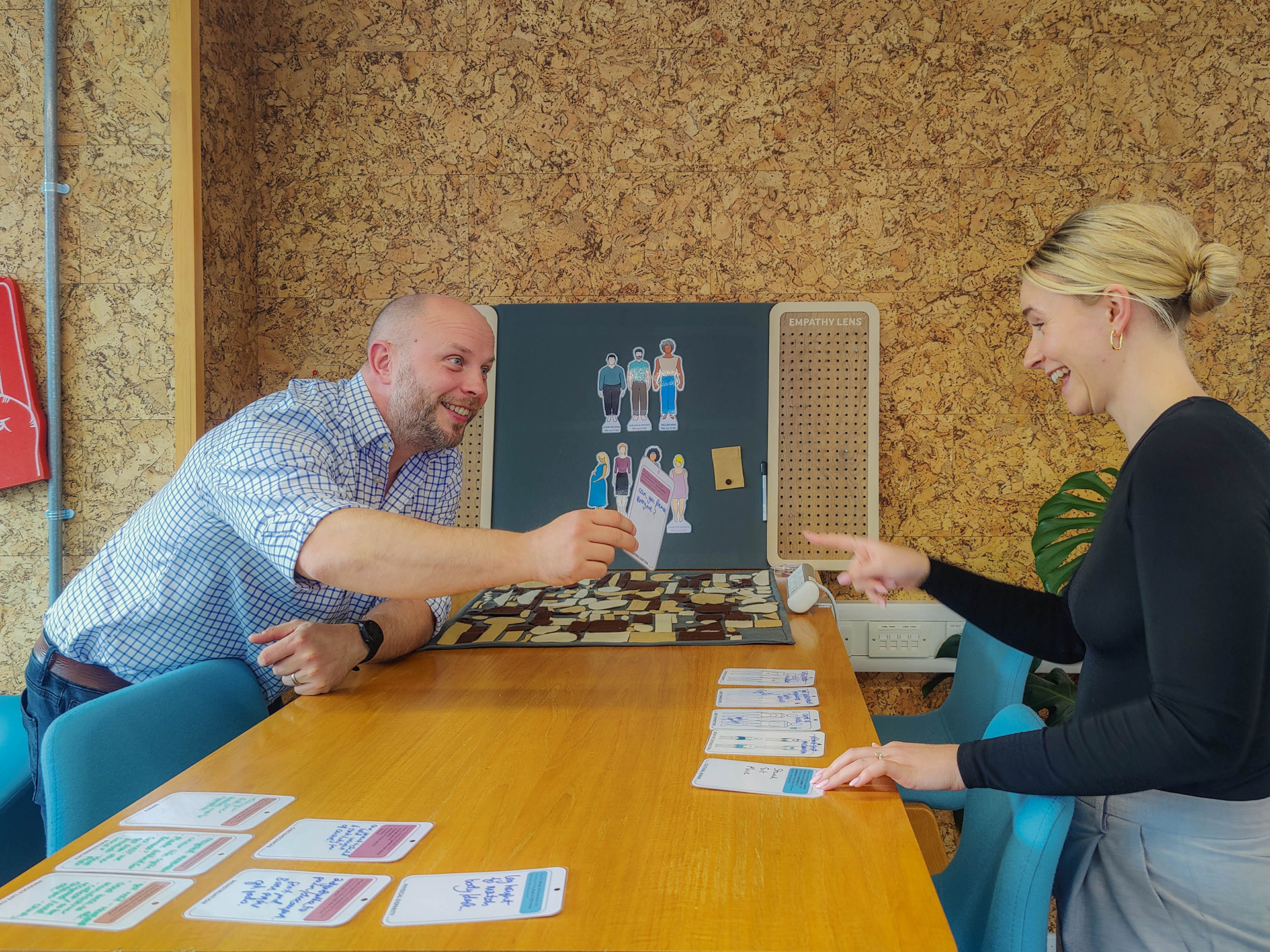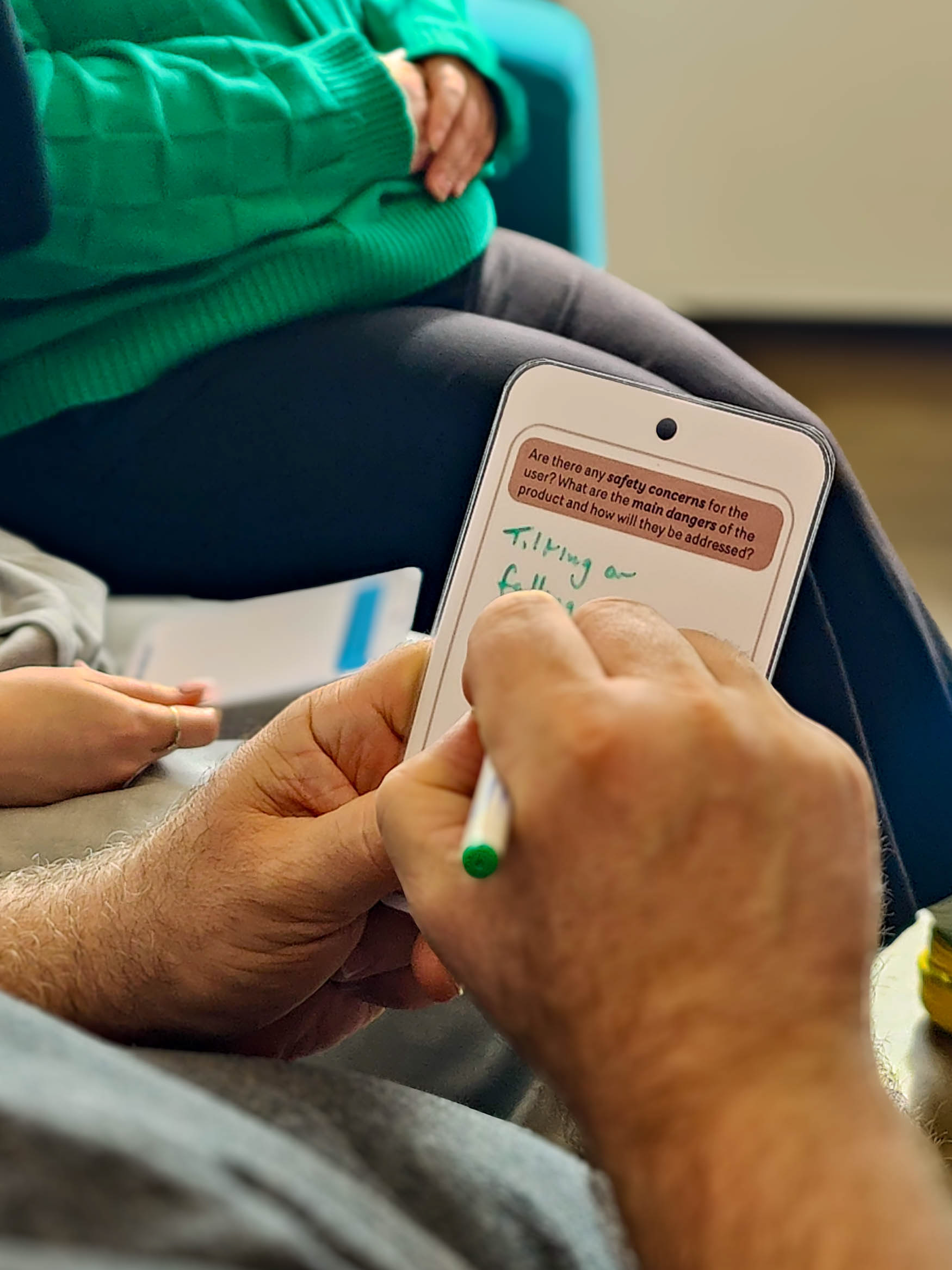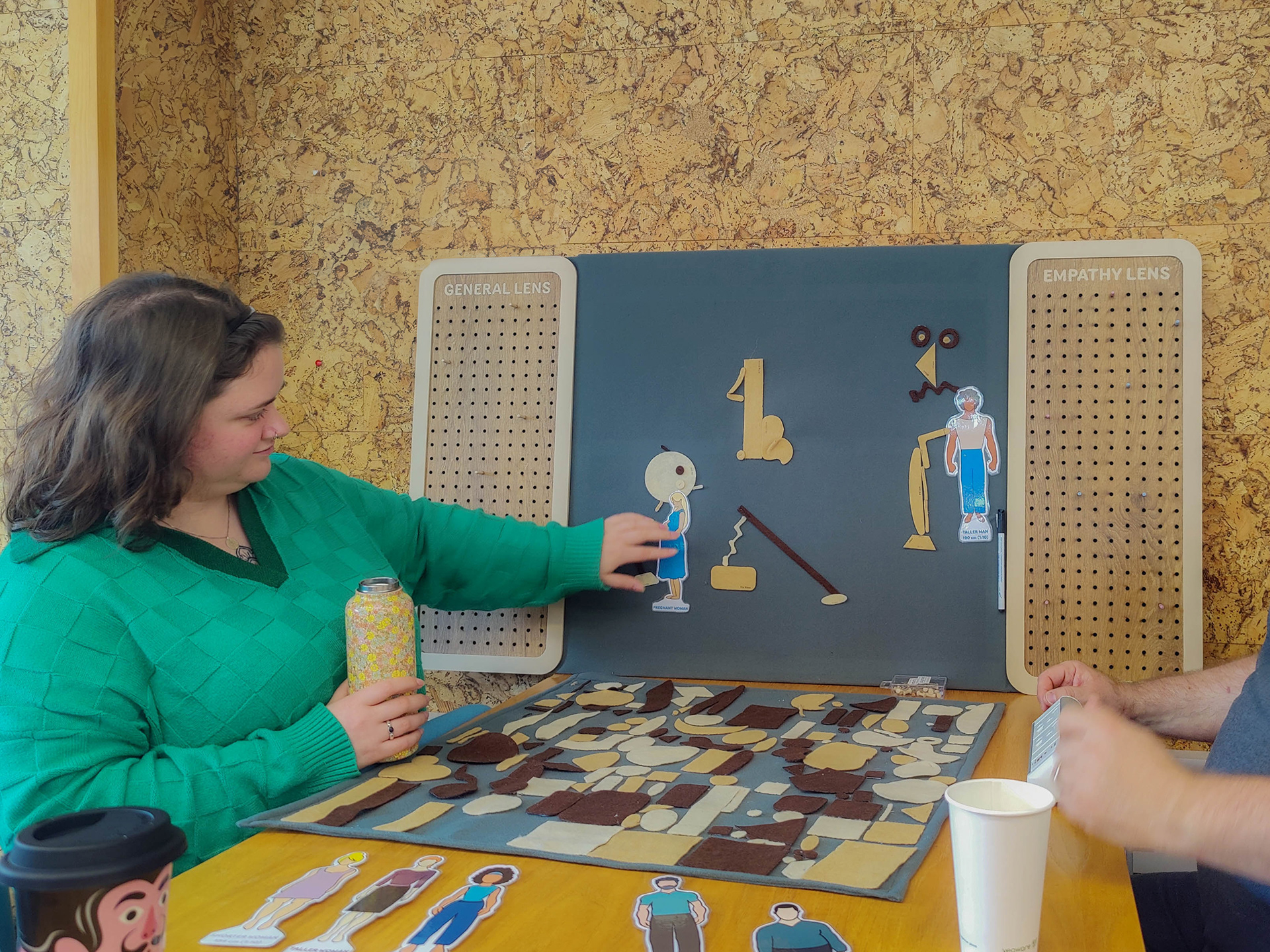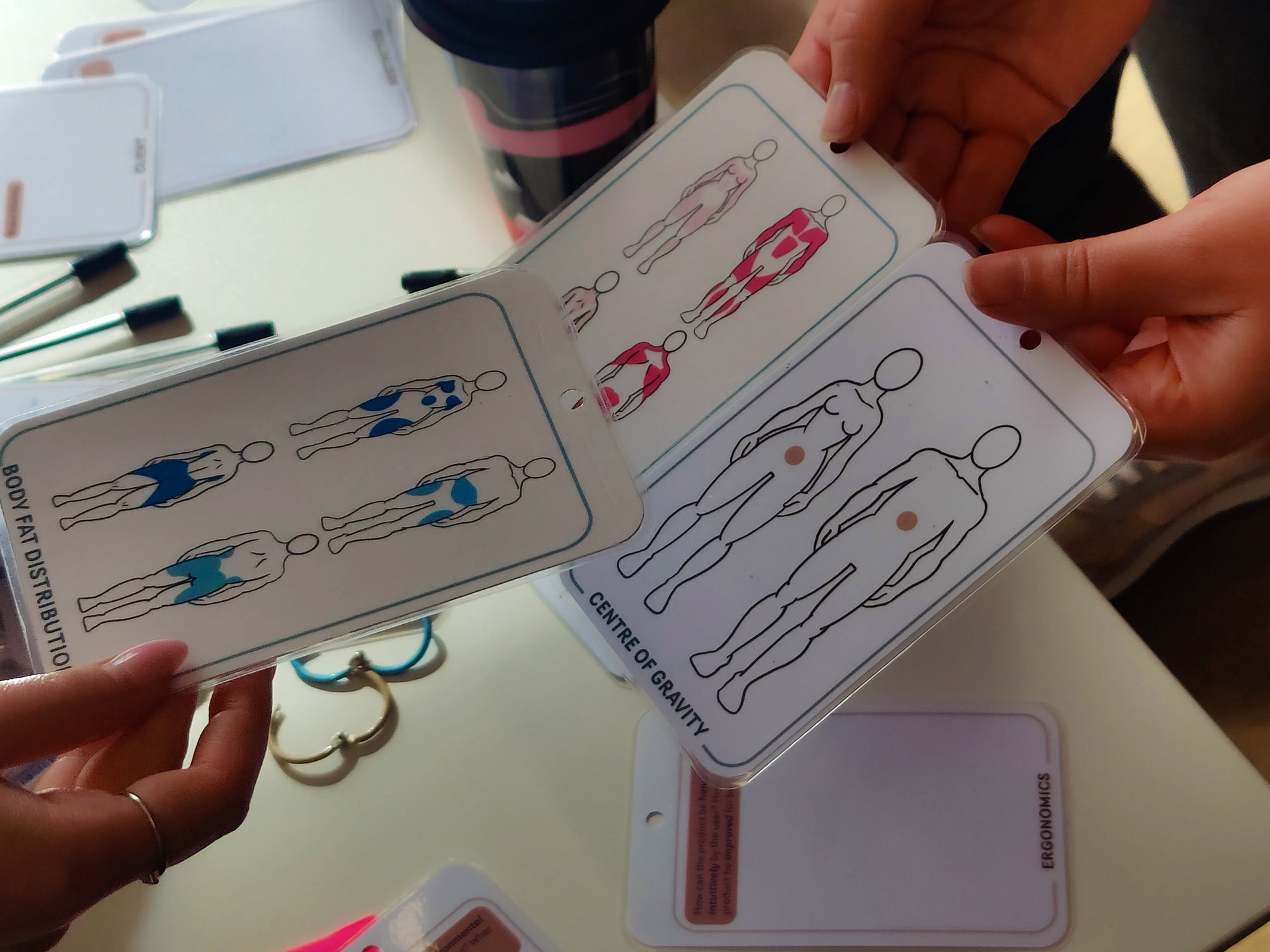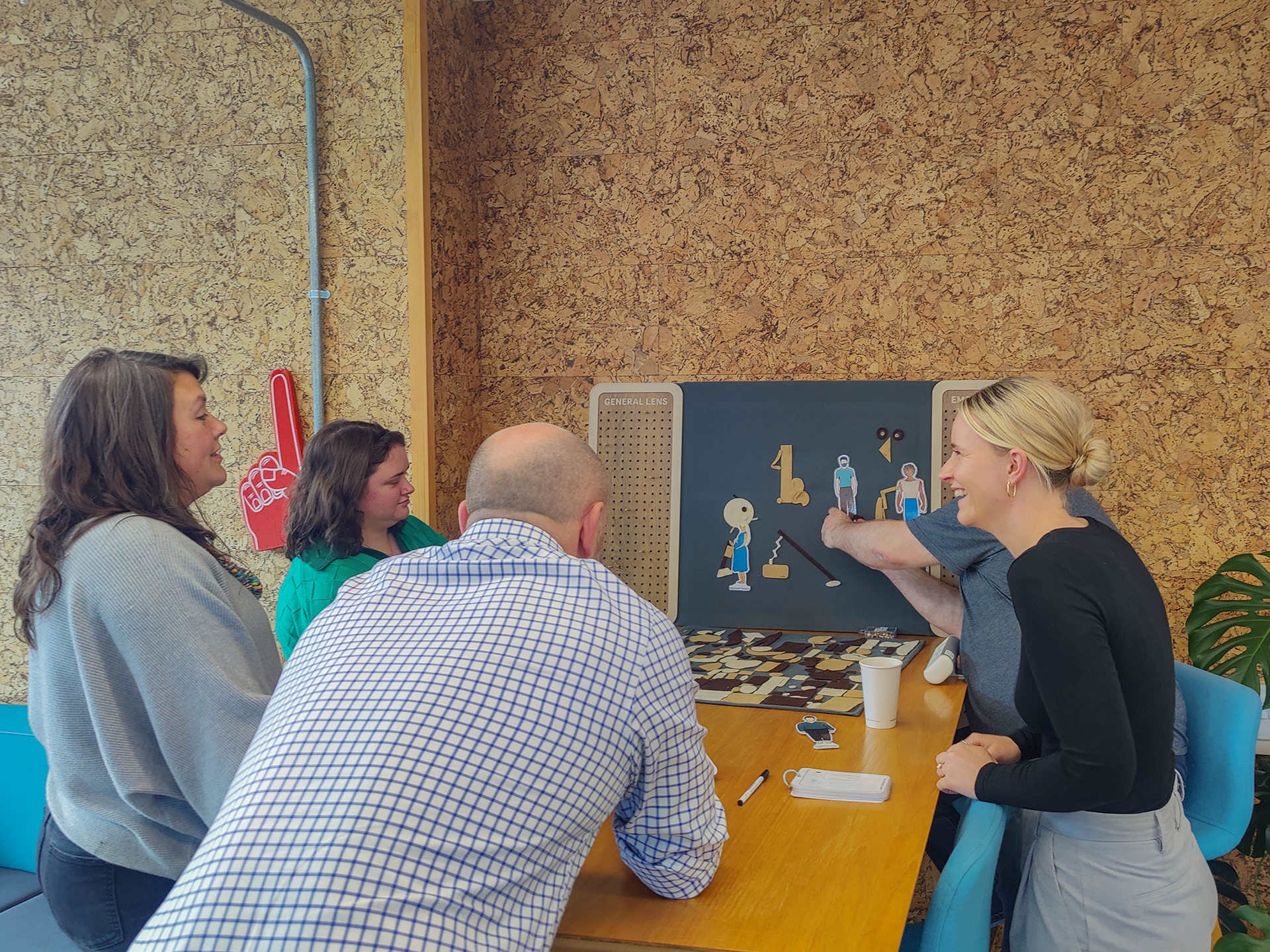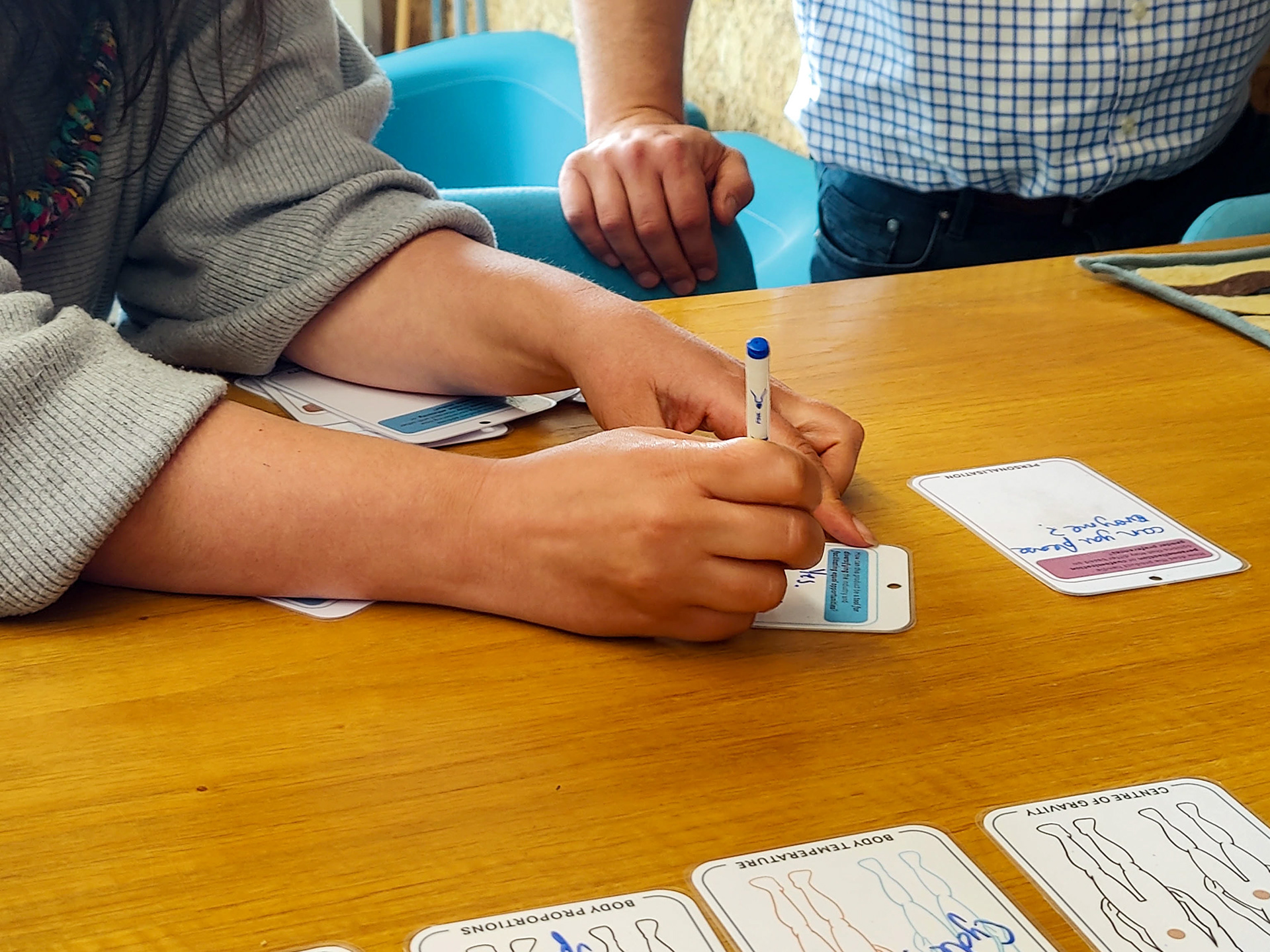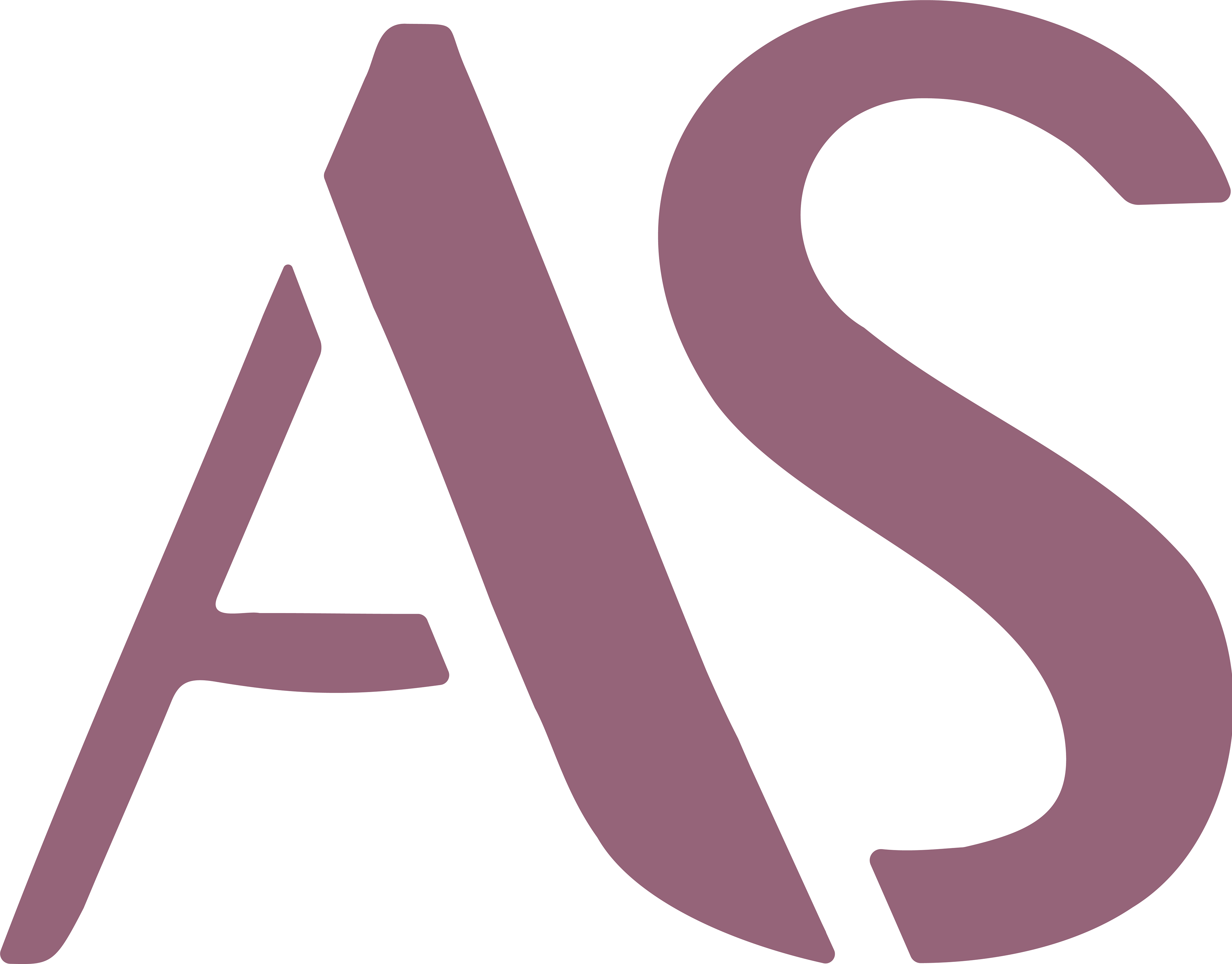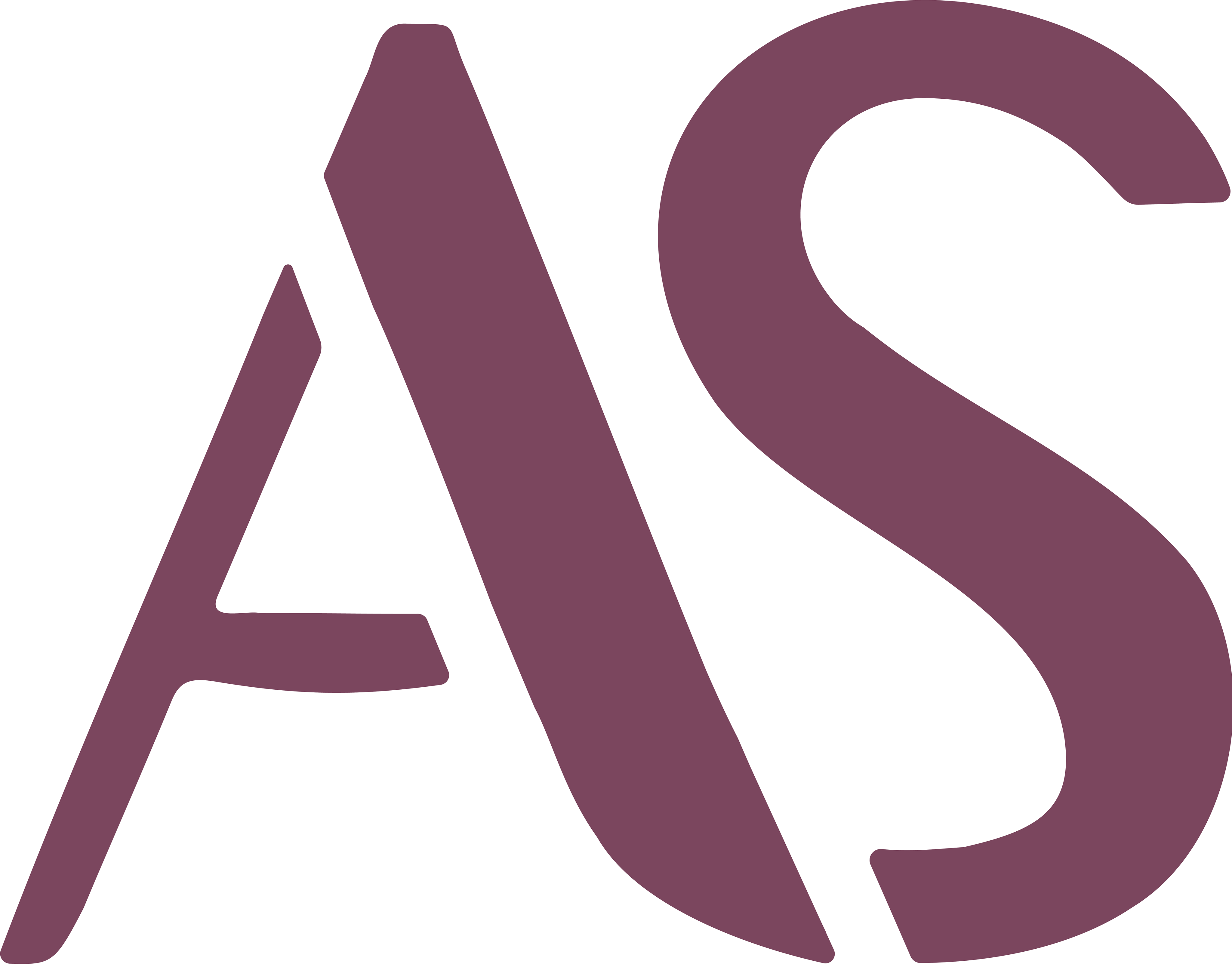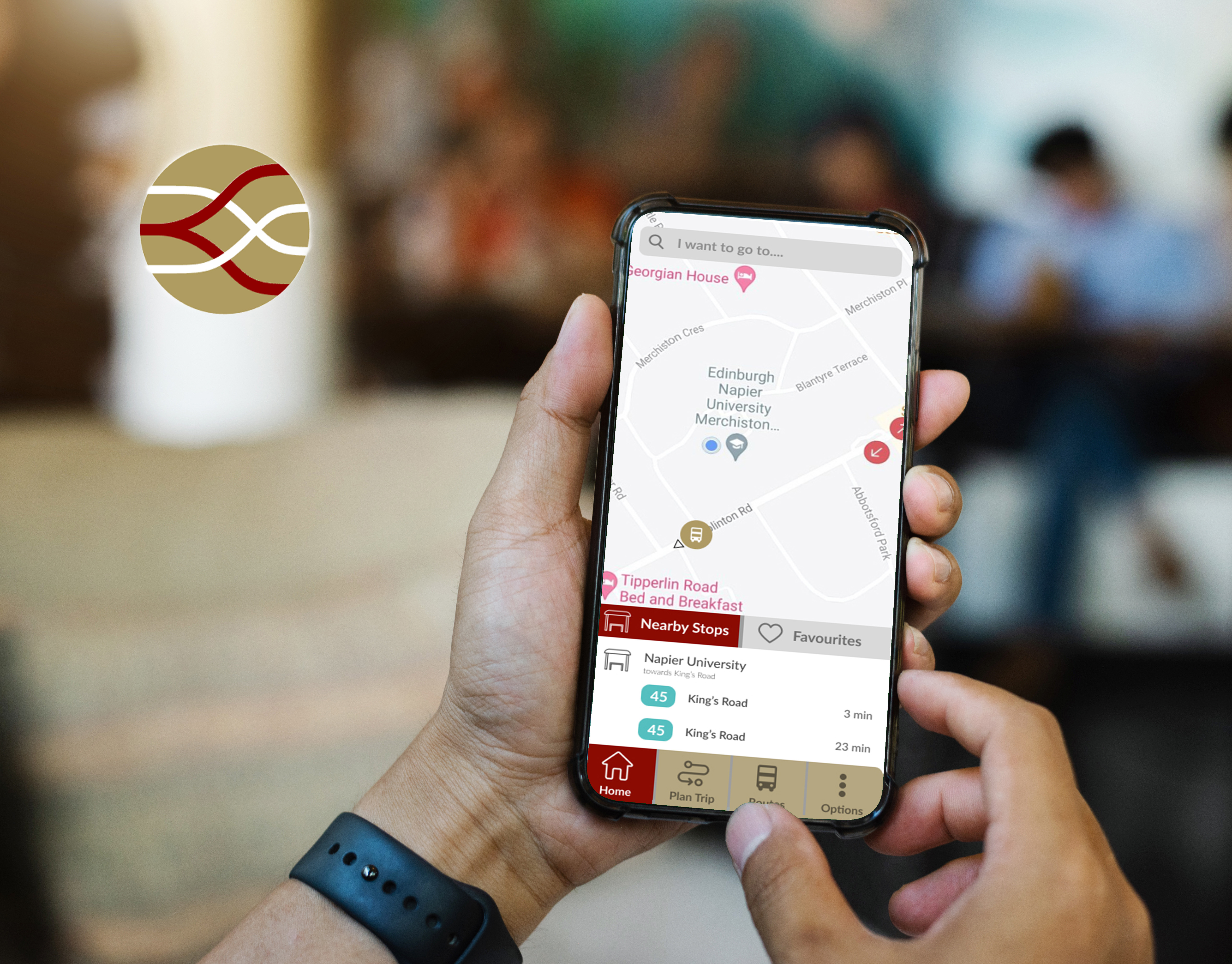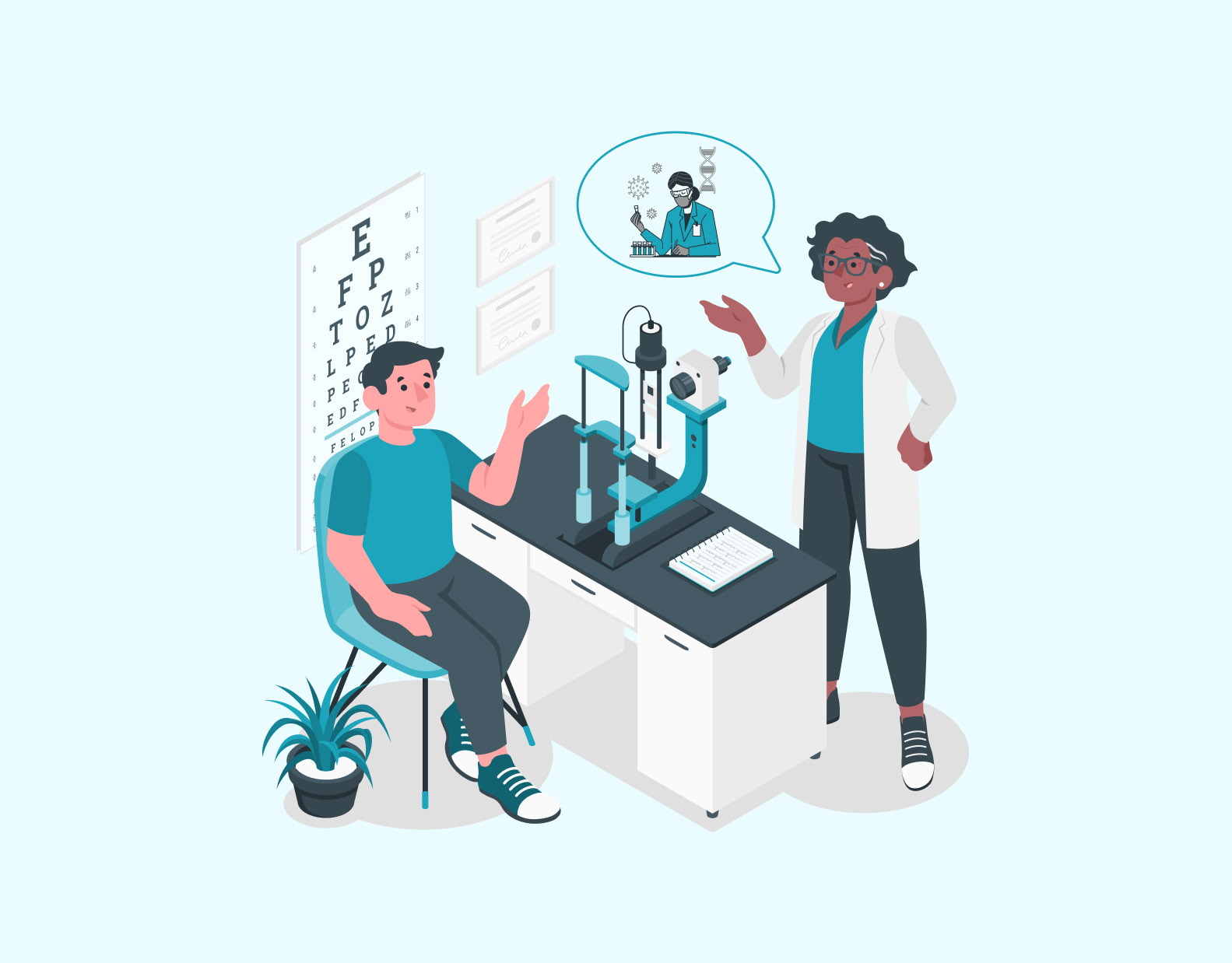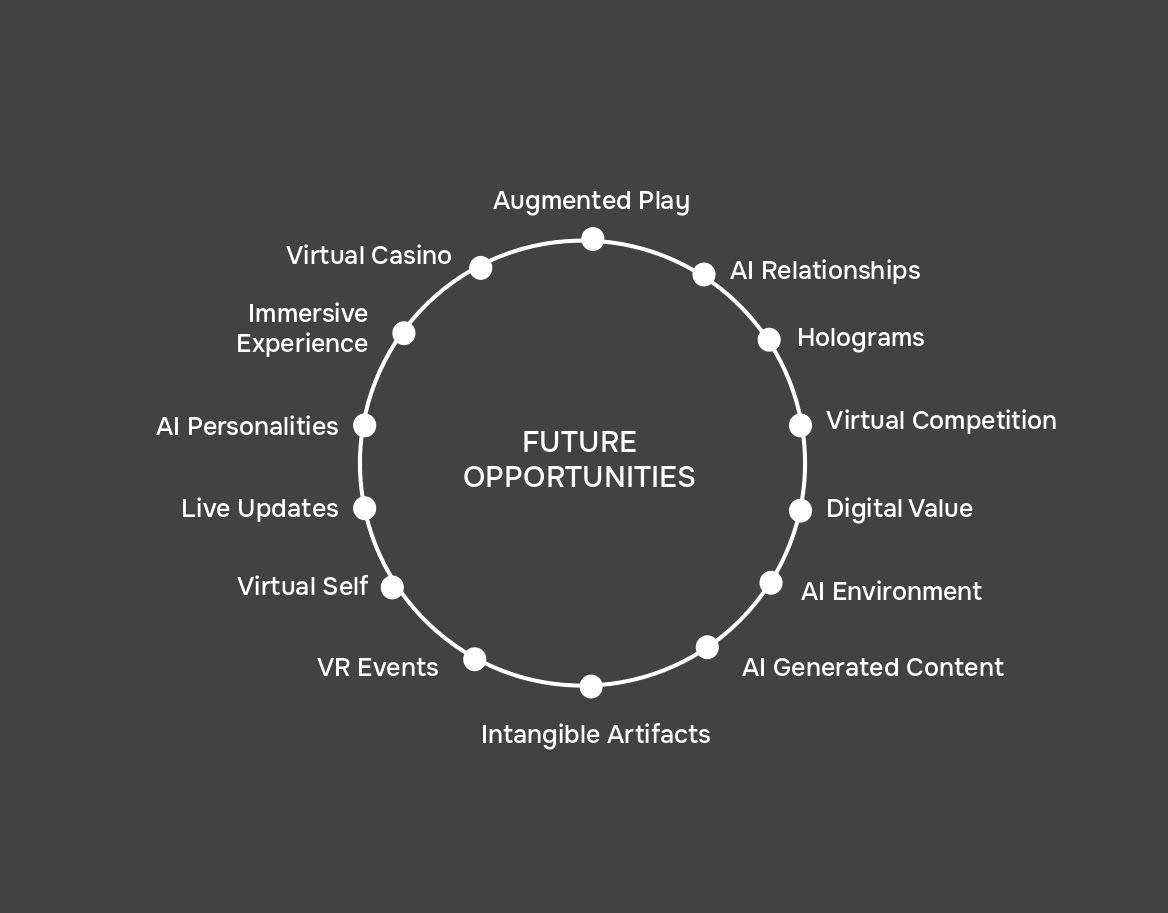Project type: Final year project (individual)
Timeline: September 2023 - May 2024 & ongoing development for a client
Summary: This project was developed as my final-year thesis at Edinburgh Napier University. It explored how designers can identify and address gender bias within the design process, resulting in Empathy Playground, a product-based service toolkit that supports more inclusive and reflective design practices.
Many everyday objects are biased, especially against women
Women face higher car crash fatalities, ill-fitting uniforms, and technology that ignores size differences, and many more hidden biases. Men also encounter biases, such as poorly placed baby-changing facilities. These issues arise from design flaws that neglect sex-based differences.
Conducting a literature review highlighted other factors contributing to this sex-based bias in products: lack of data on women's bodies (most research does not sex-segregate, so differences in needs are overlooked) and lack of female designers.
A survey was created to further try to understand women's experiences in industrial design in the UK. The data was analysed using an affinity diagram and showed a lack of women in leadership positions in design. Another theme that emerged was empathy, and how it comes more easily for women.
Follow-up interviews on the survey findings revealed that empathy in design may depend more on diverse lived experiences than on sex, highlighting the importance of having a diverse team.
The main factors influencing product bias are the lack of female designers, insufficient data, and unconscious bias. To address these, various project directions were proposed: creating a database for equal research, exploring female-only design, and offering services to diversify the industry. A mix of these approaches will be applied to the final project to ensure comprehensive solutions.
Research showed that this is a complex problem
This project aims to reduce gender bias in design by helping designers identify and address unconscious biases early in the process, creating more equitable products. While it will eventually address various biases, the current focus is on gender biases related to biological sexes. The intended users are individual designers, design teams, and design agencies.
Initial prototypes included board games, card decks, and spinning wheels to help designers recognise their biases. Card decks, being popular and easily integrated, were chosen based on market research.
The first version of the cards had an interrogative and a preemptive side, which users found confusing. One user suggested adding a note-taking option. The main challenge was visualising and iterating ideas, leading to the addition of a toolkit.
Based on feedback, a toolkit was created featuring cards that serve as building blocks for prototyping and gamification. Testing raised concerns about prototype storage and highlighted the need for human figures to provide scale and consideration of the human factor.
Insights from users began shaping the idea of a toolkit
A new set of cards, featuring PD specifications and bias-spotting questions and a felt shape prototype kit, was developed and successfully tested with design students. Key takeaways included the need for more fact cards on gender differences, improved readability, and varied shapes.
The board was developed to act as a display for the cards and the prototype kit. It has a removable sheet of material which can be attached below or used to ideate on a table.
Based on research, prototypes, and user feedback, the product targets biases in design, especially male and female biases. The cards are supported by a board, a prototype kit, human figures, and accessories.
Empathy Playground empowers teams to uncover unconscious biases in design and collaboratively create inclusive, human-centred solutions through a hands-on and engaging approach.
Designed as a versatile service toolkit, Empathy Playground bridges the gap between abstract theory and actionable insights, providing organisations, educators, and individuals with the resources to drive inclusivity and innovation in their projects.
Better design starts with empathy
The Empathy Playground System prioritises empathy at the beginning of the design process. This approach empowers the design team to create better products that seamlessly integrate the diverse needs of both men and women.
The core of the Empathy Playground system is its erasable Empathy Cards, each with an introspective question for designers. They can be used alone or with the board and prototype kit. The Male & Female Cards prompt gender-conscious design.
The bespoke Empathy Playground Board is a creative space with a Prototype Kit for visualizing concepts. Made of bamboo pegboards, it includes a cork-backed nylon prototype area, synthetic felt shapes, and seven-scale figures representing men and women.
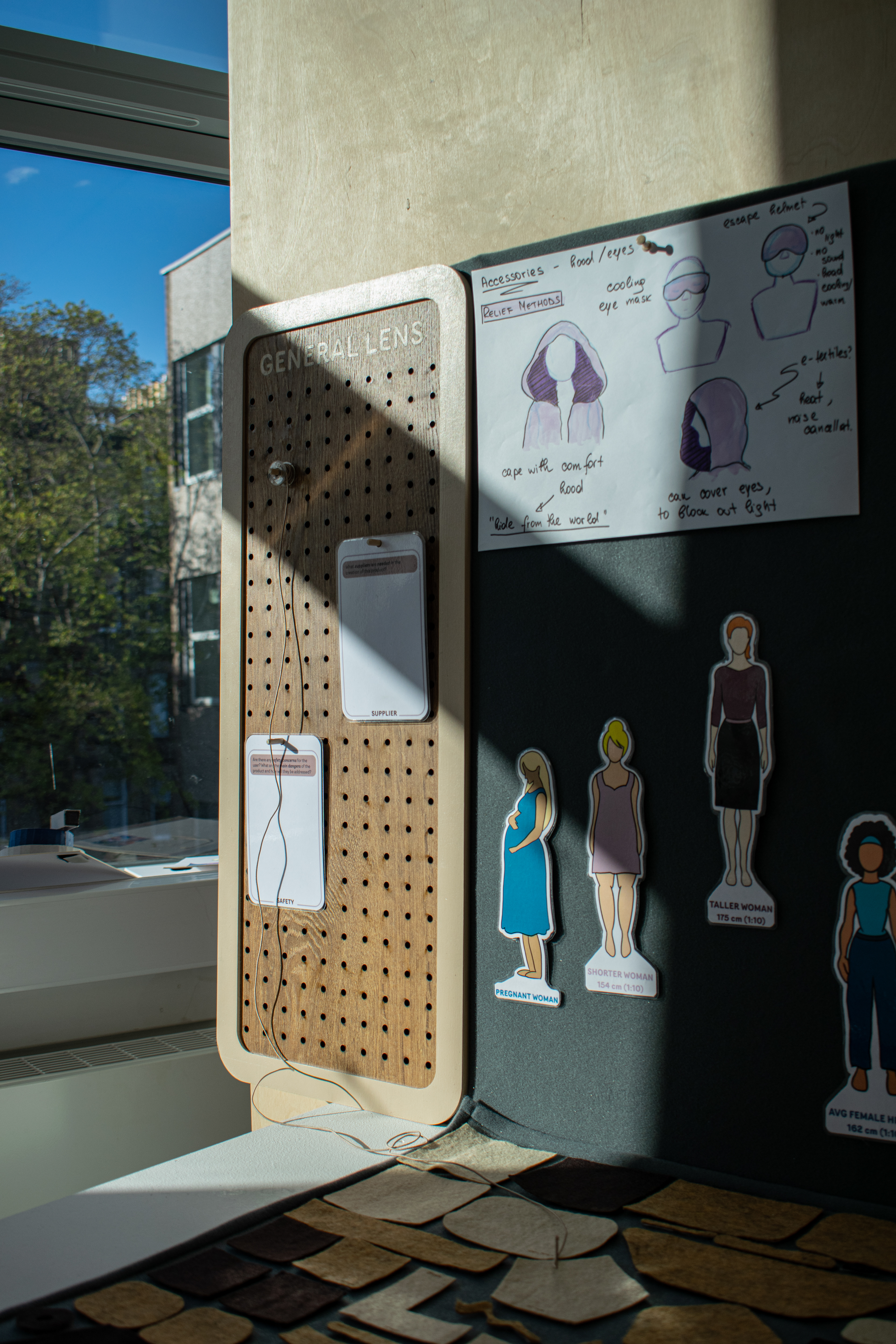
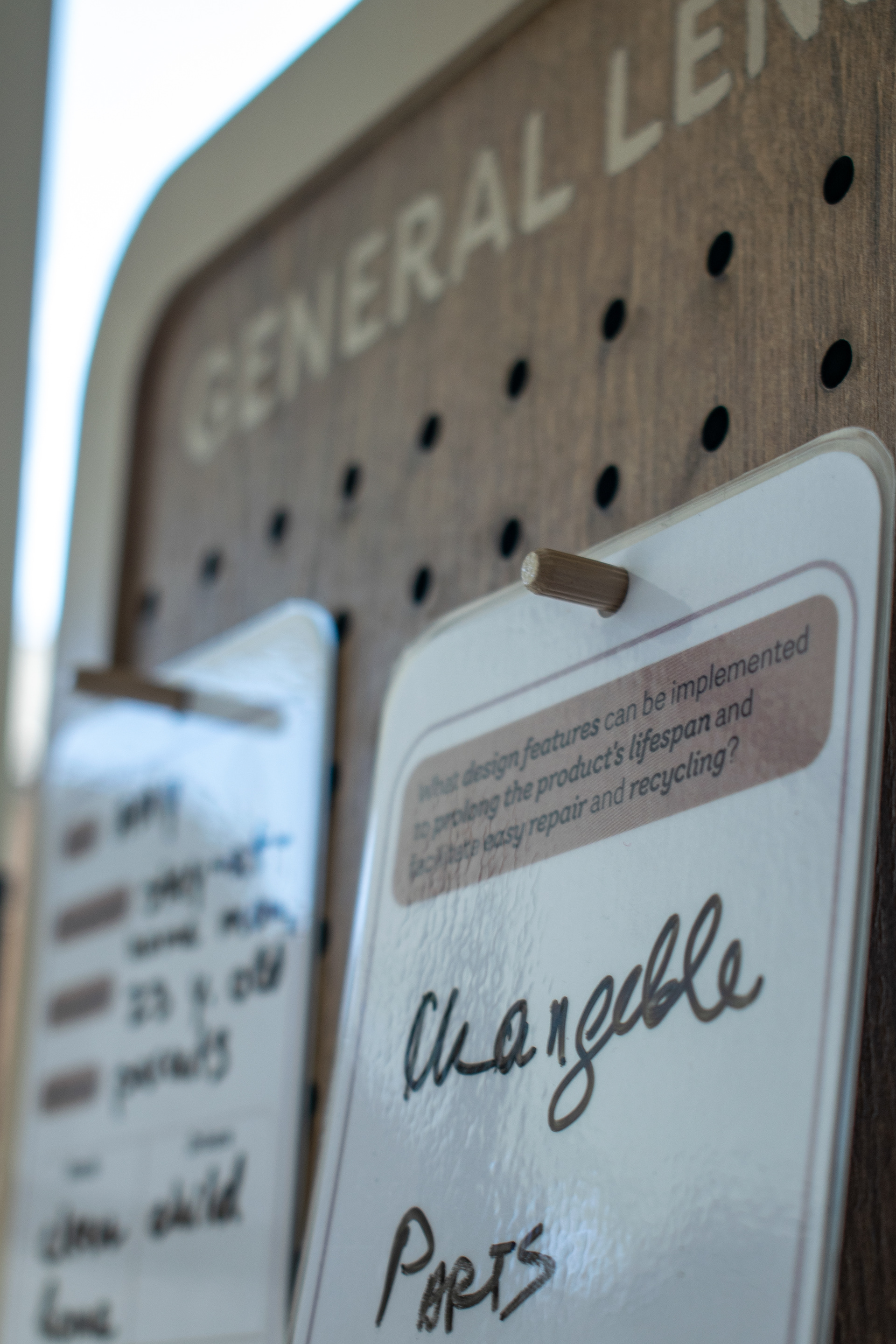
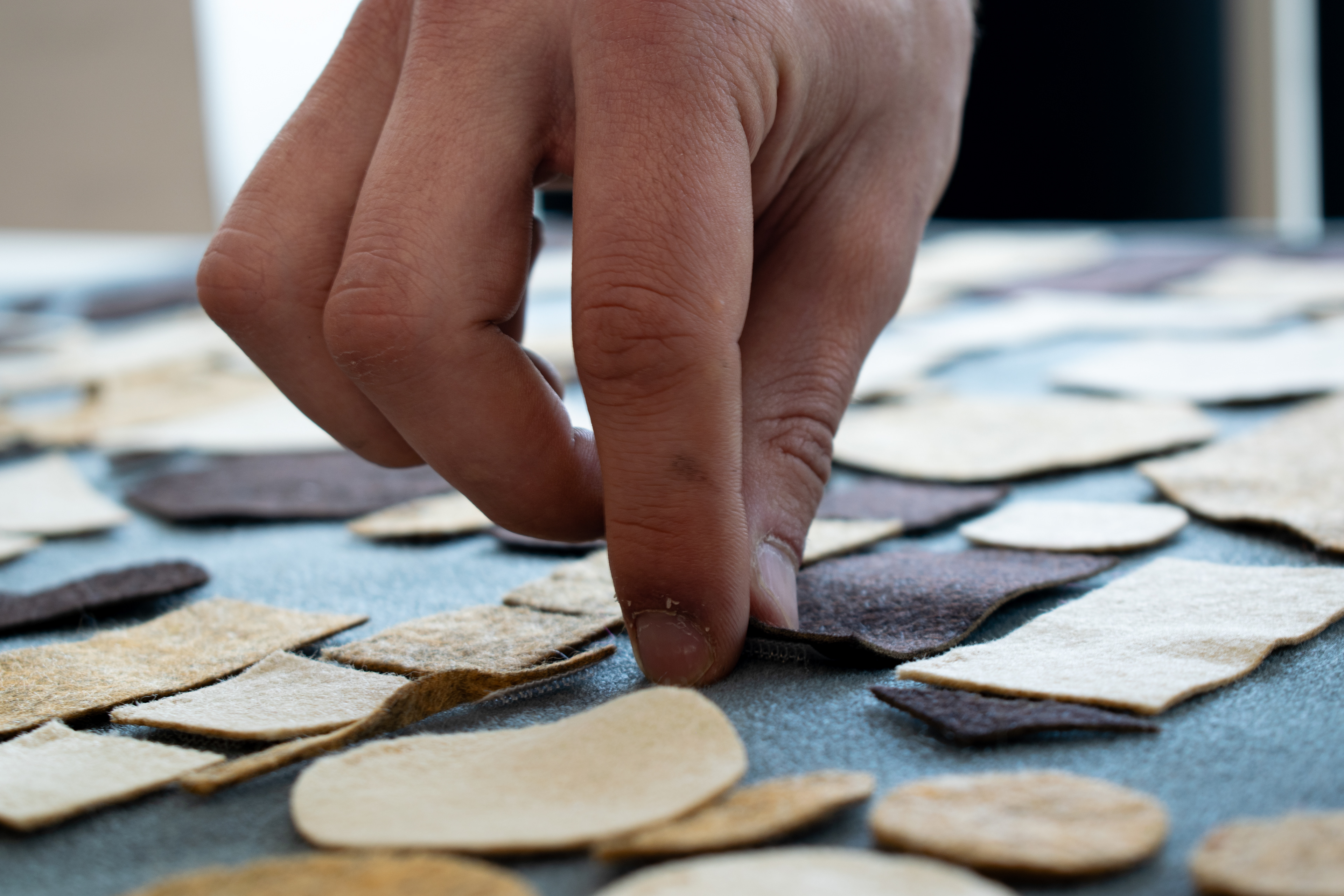
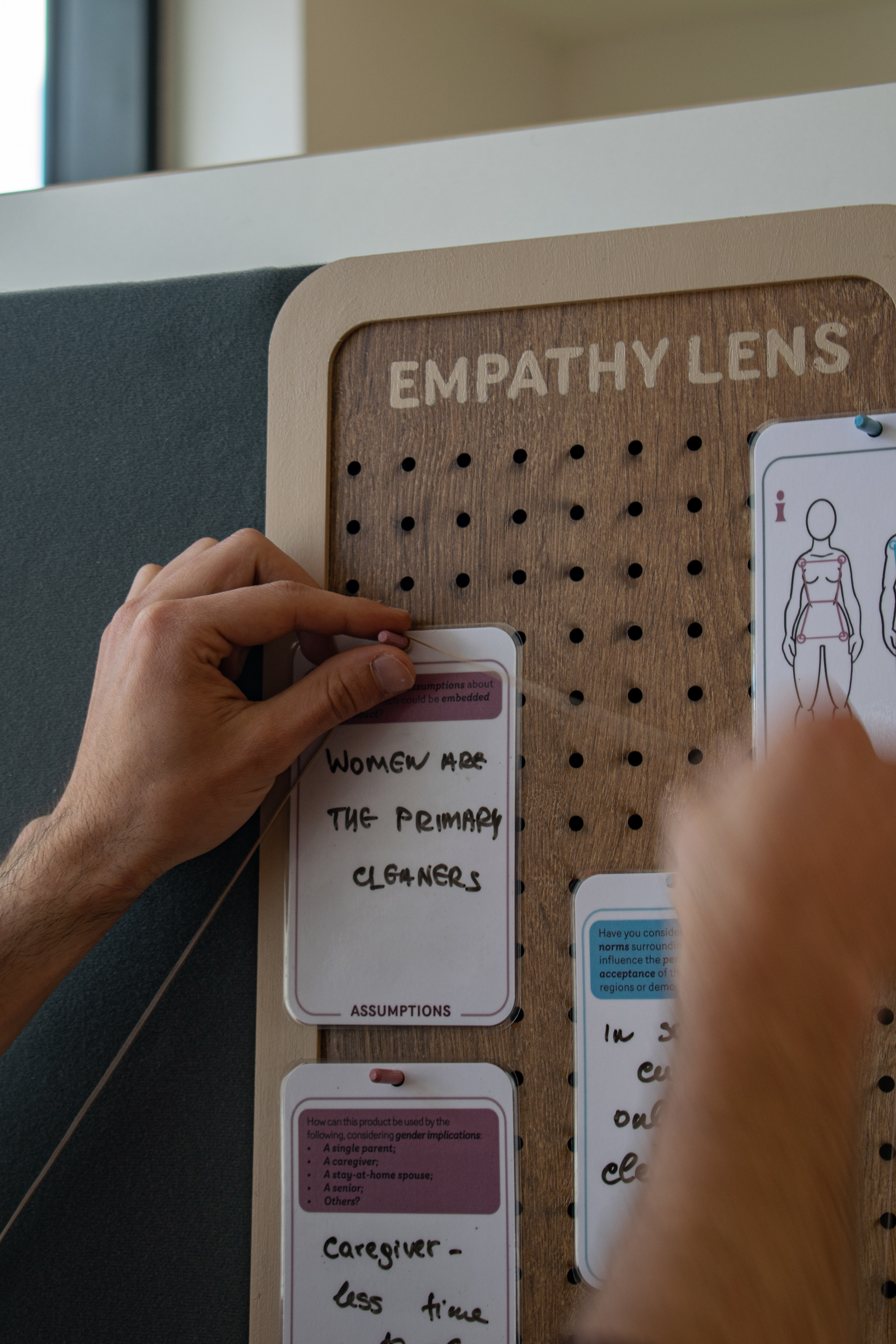
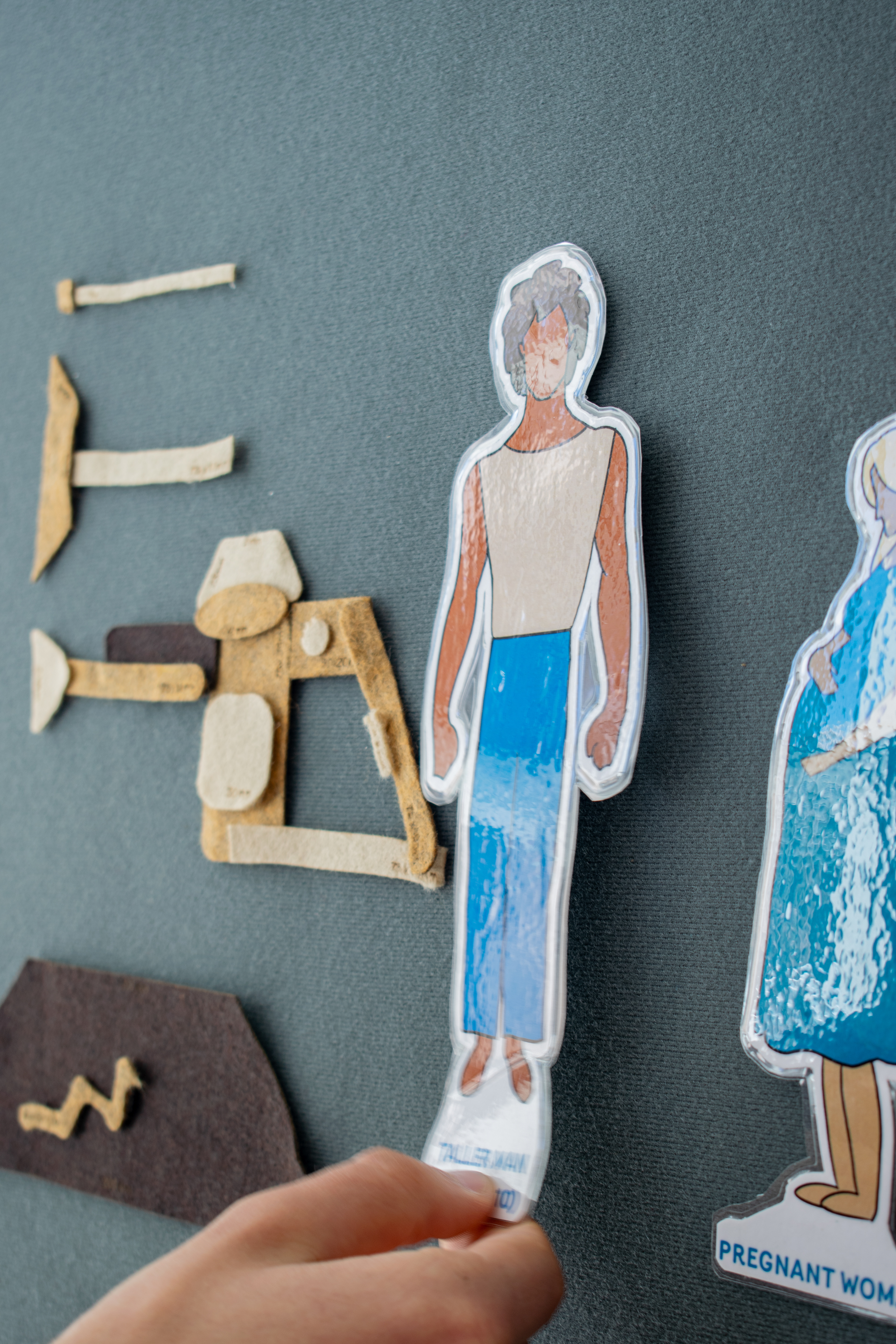
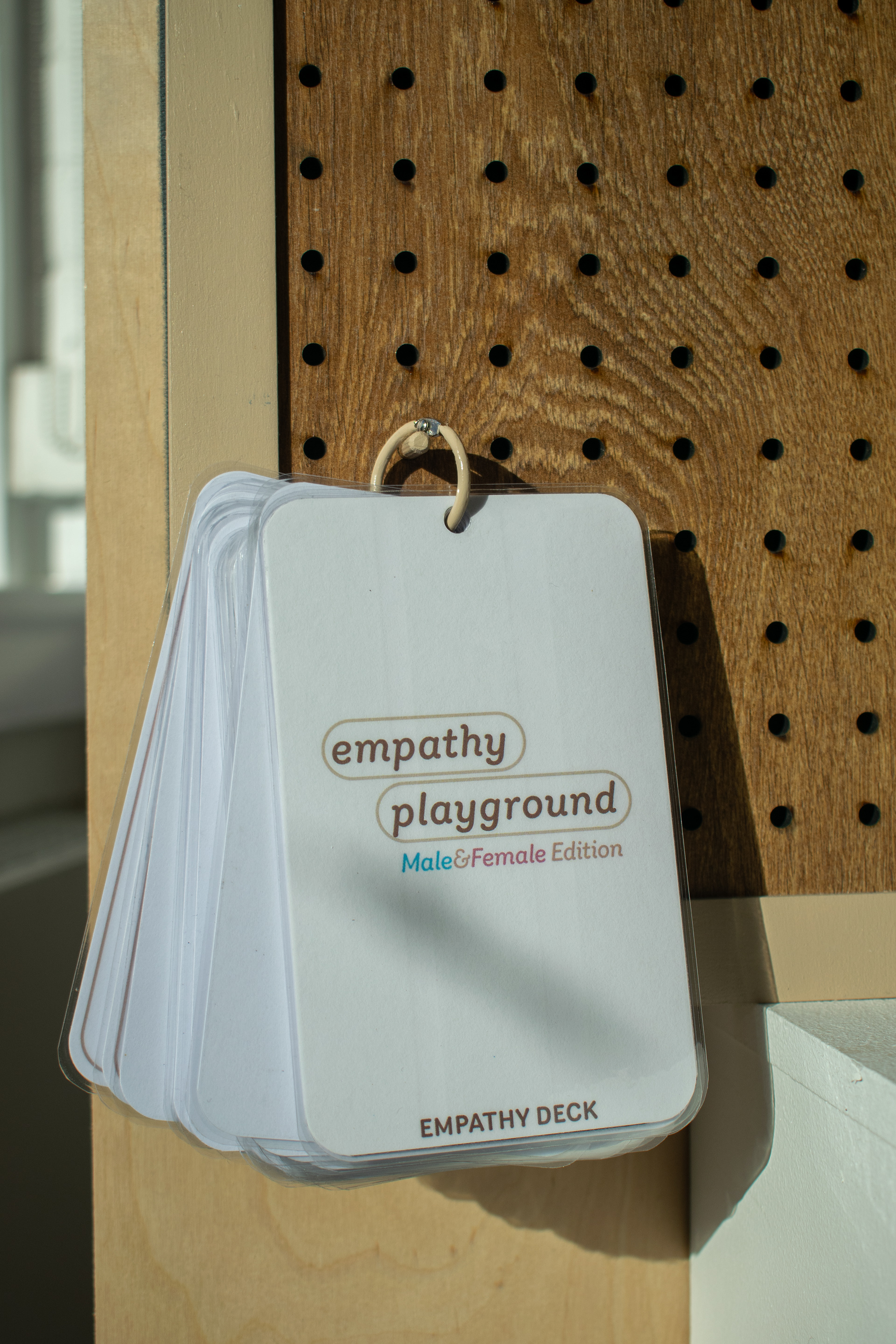
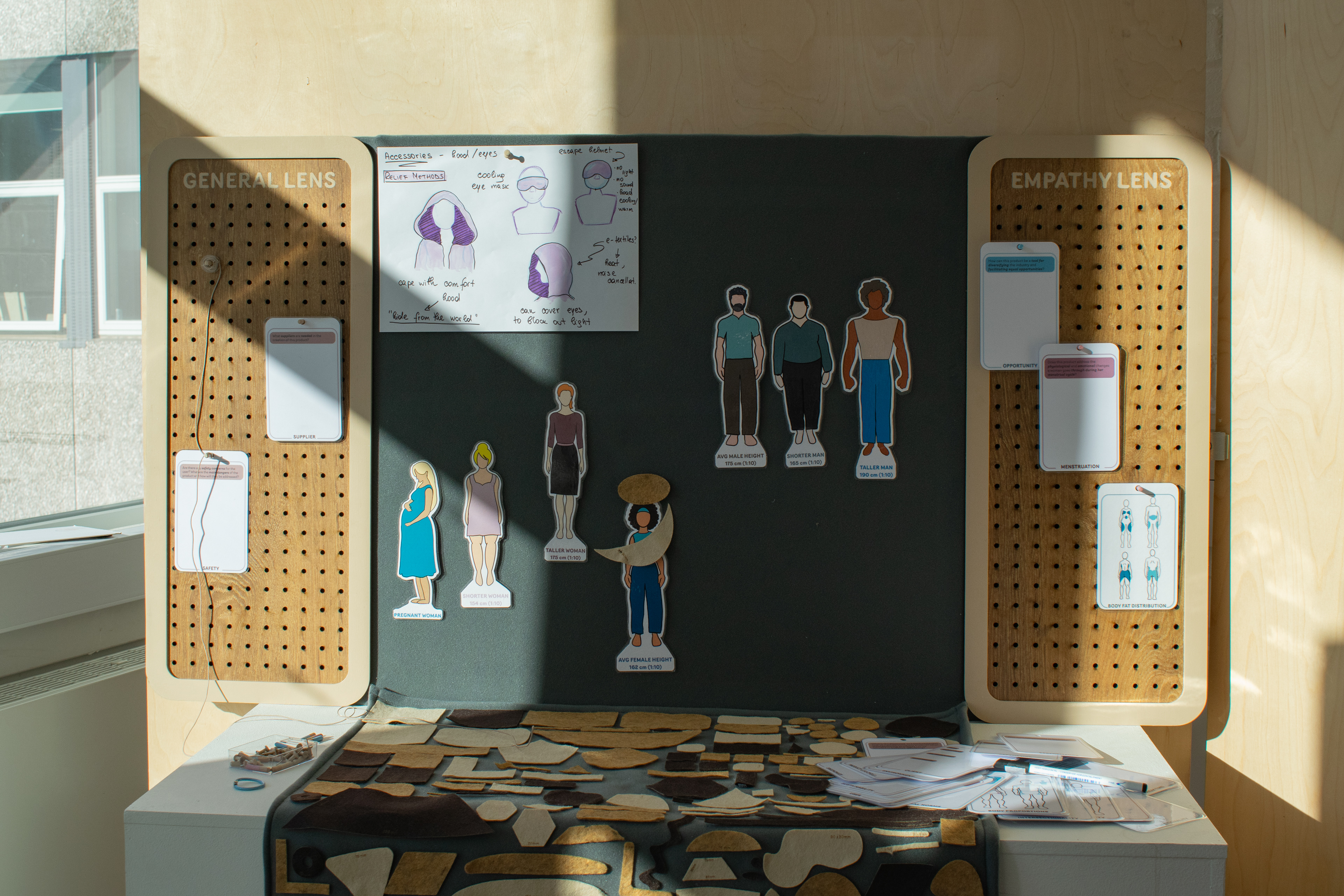
A low-fidelity website (click here to access) was created to show the possible range of the Empathy Playground, such as future card editions, future accessories and customisation of boards.
Empathy Playground sparked curiosity and meaningful discussions
Empathy Playground was showcased at both the Napier Degree Show and the New Designers 2024 Exhibition, attracting a diverse audience who had the opportunity to engage with the project firsthand. The feedback was overwhelmingly positive, particularly in highlighting the project’s effective approach to addressing gender bias. Many teachers showed strong interest in incorporating the Empathy Playground cards into their classrooms, recognising their potential as a valuable educational tool.
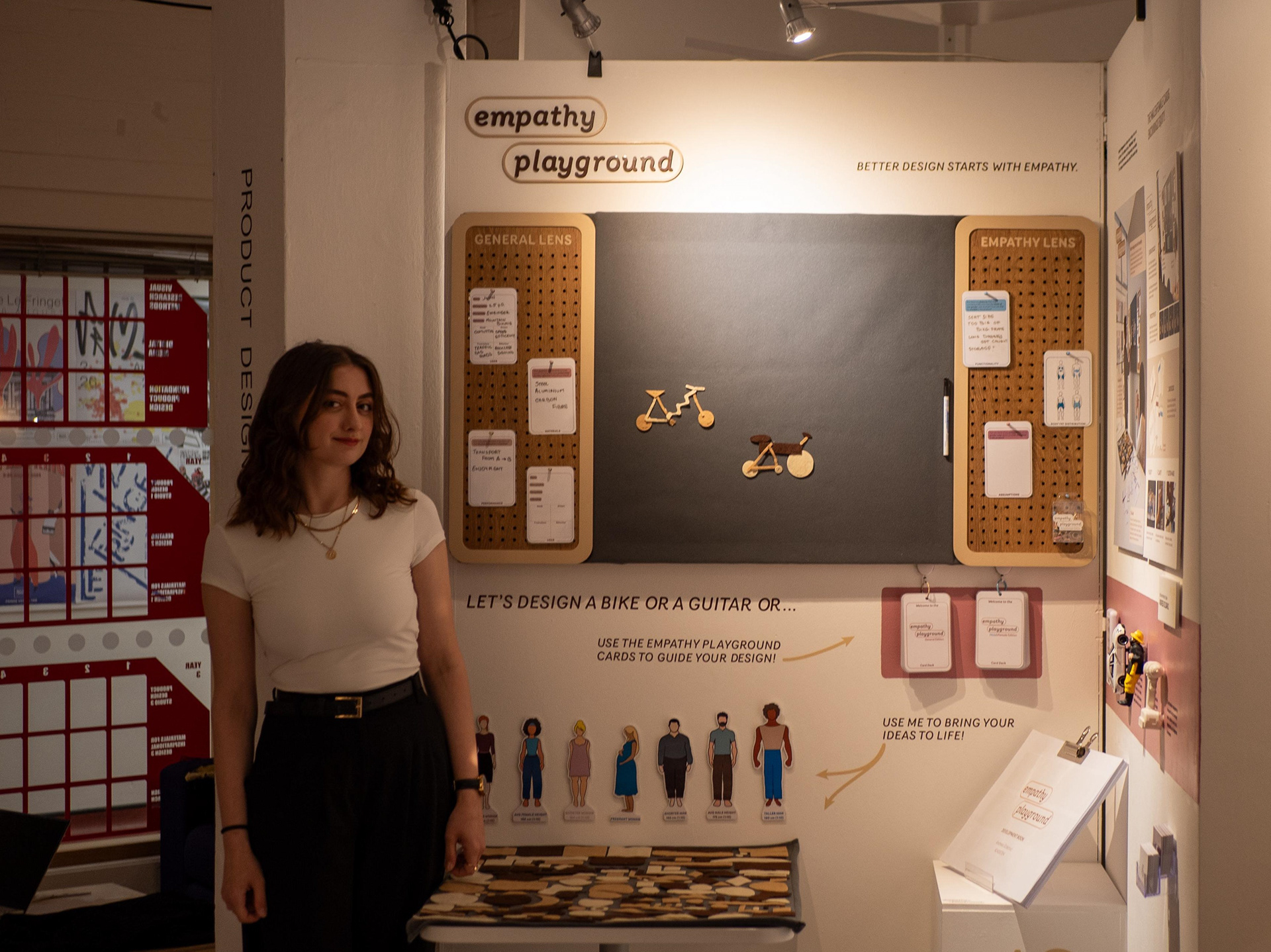
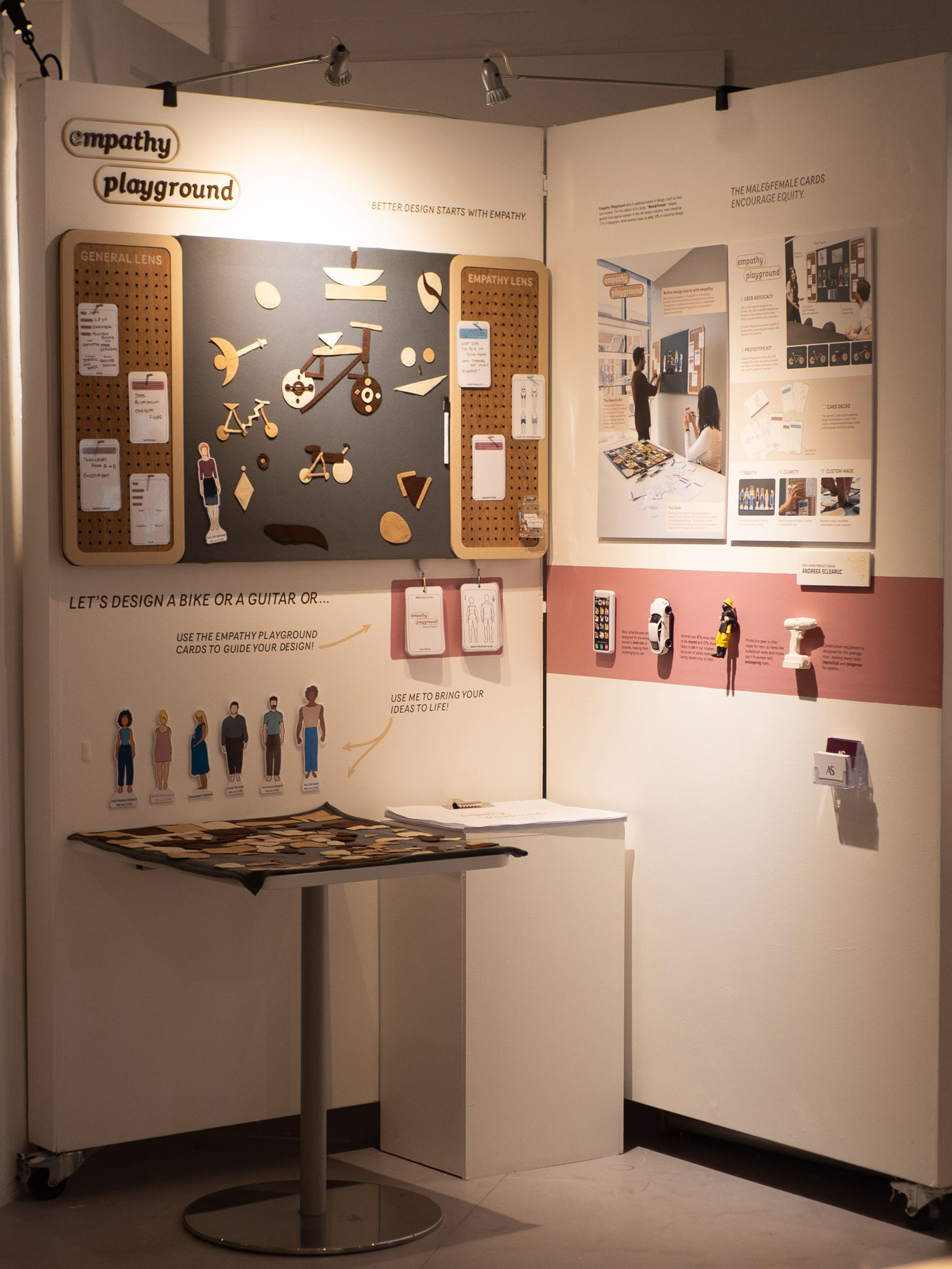
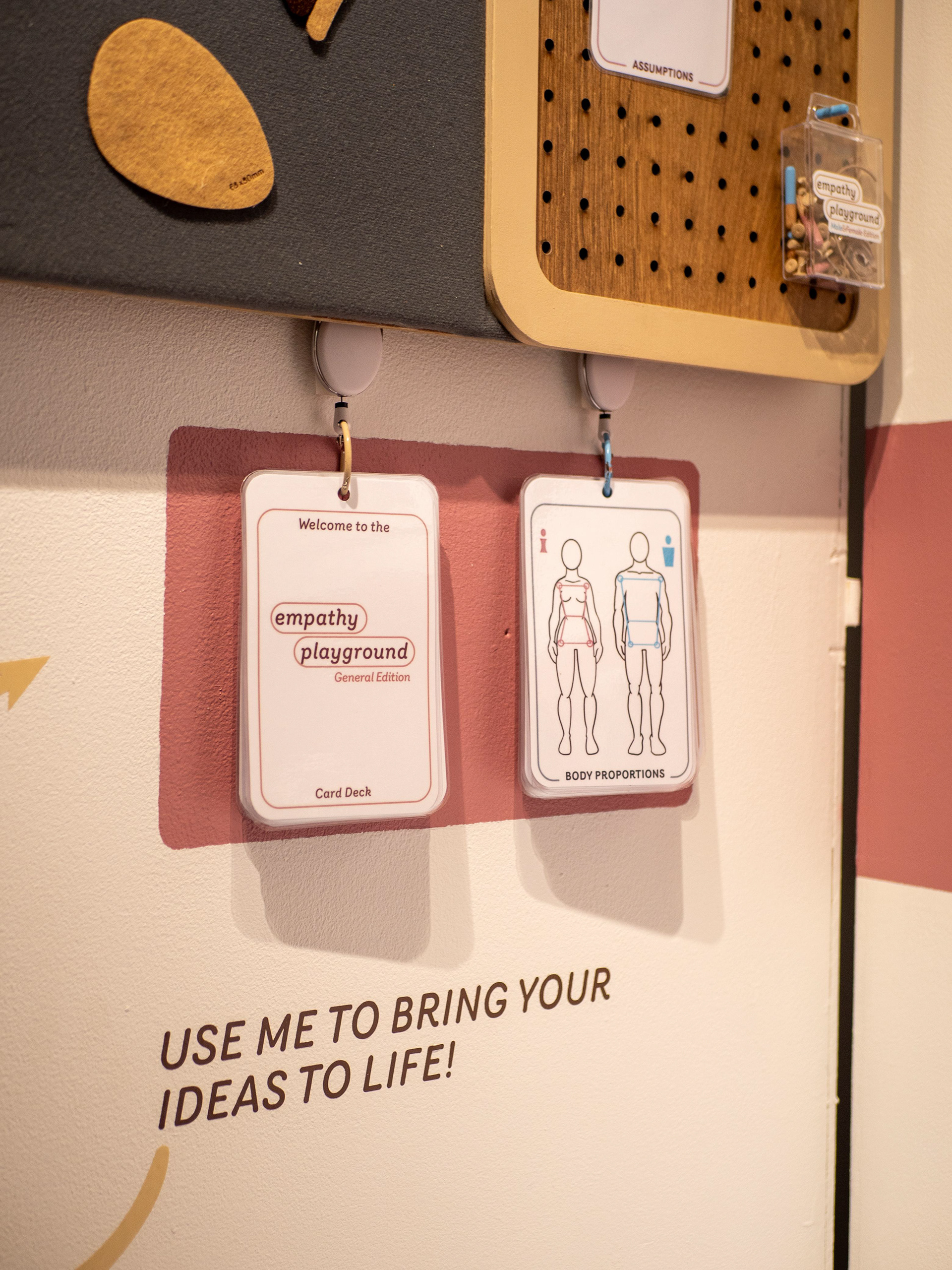
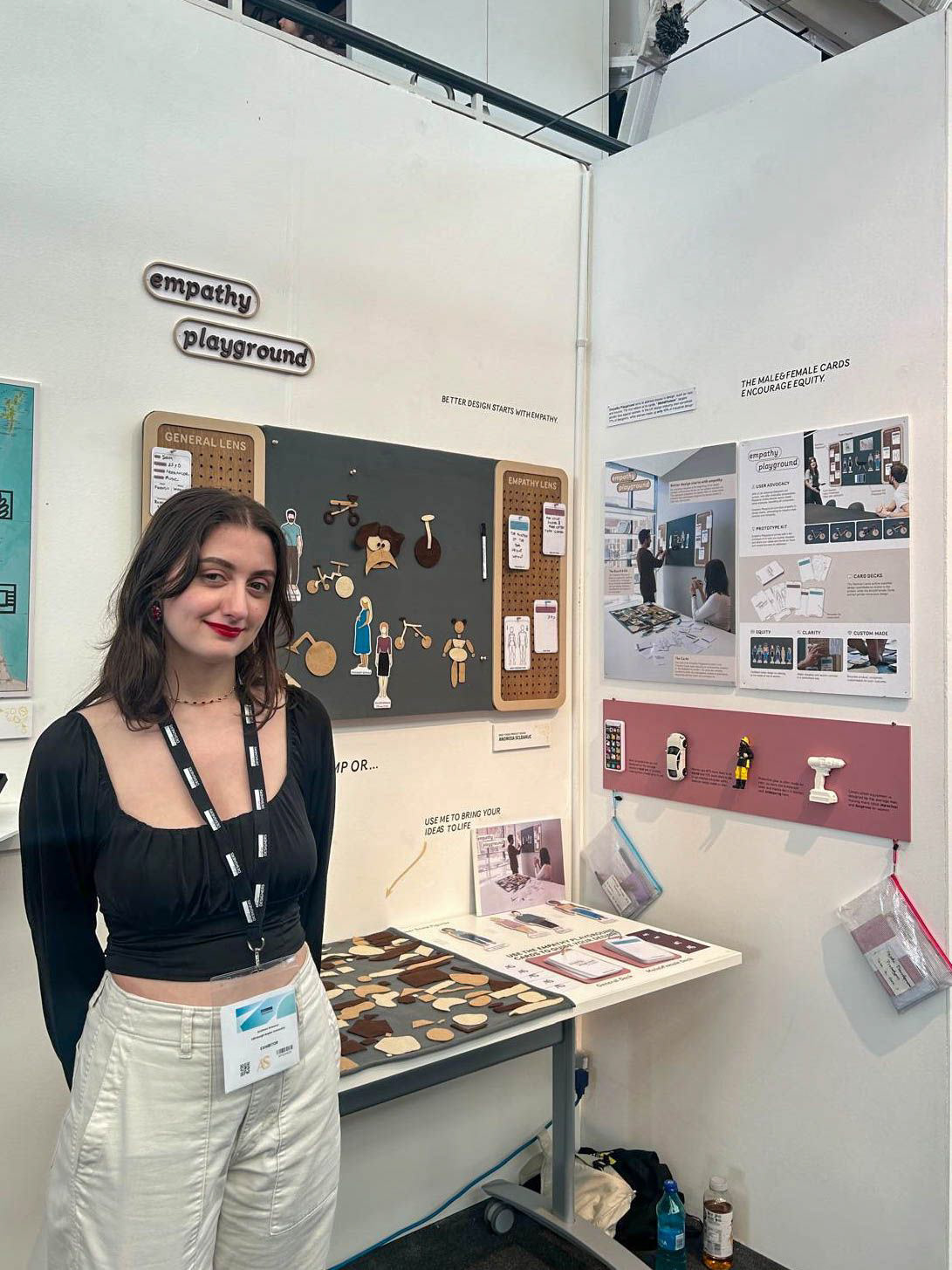
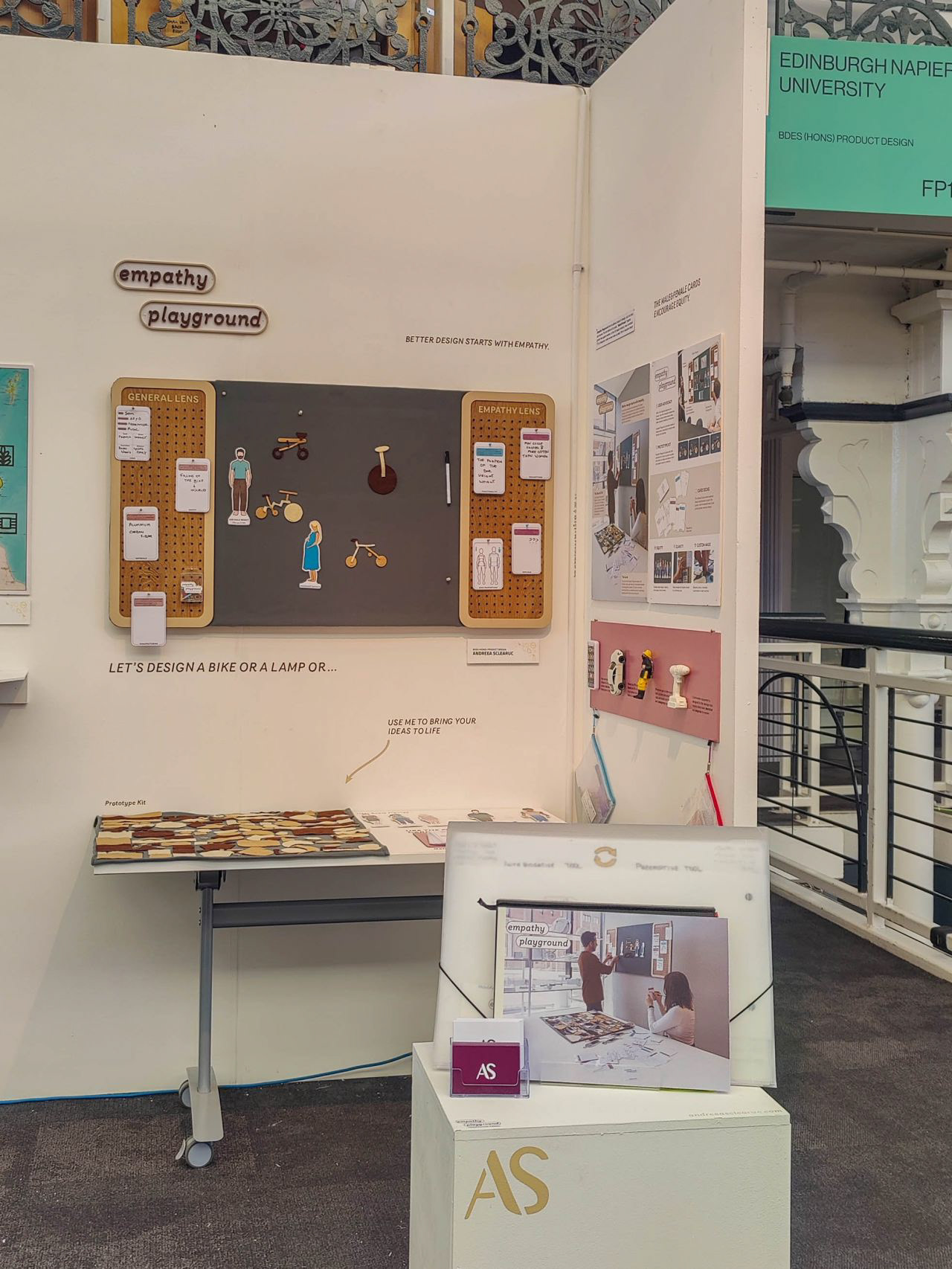
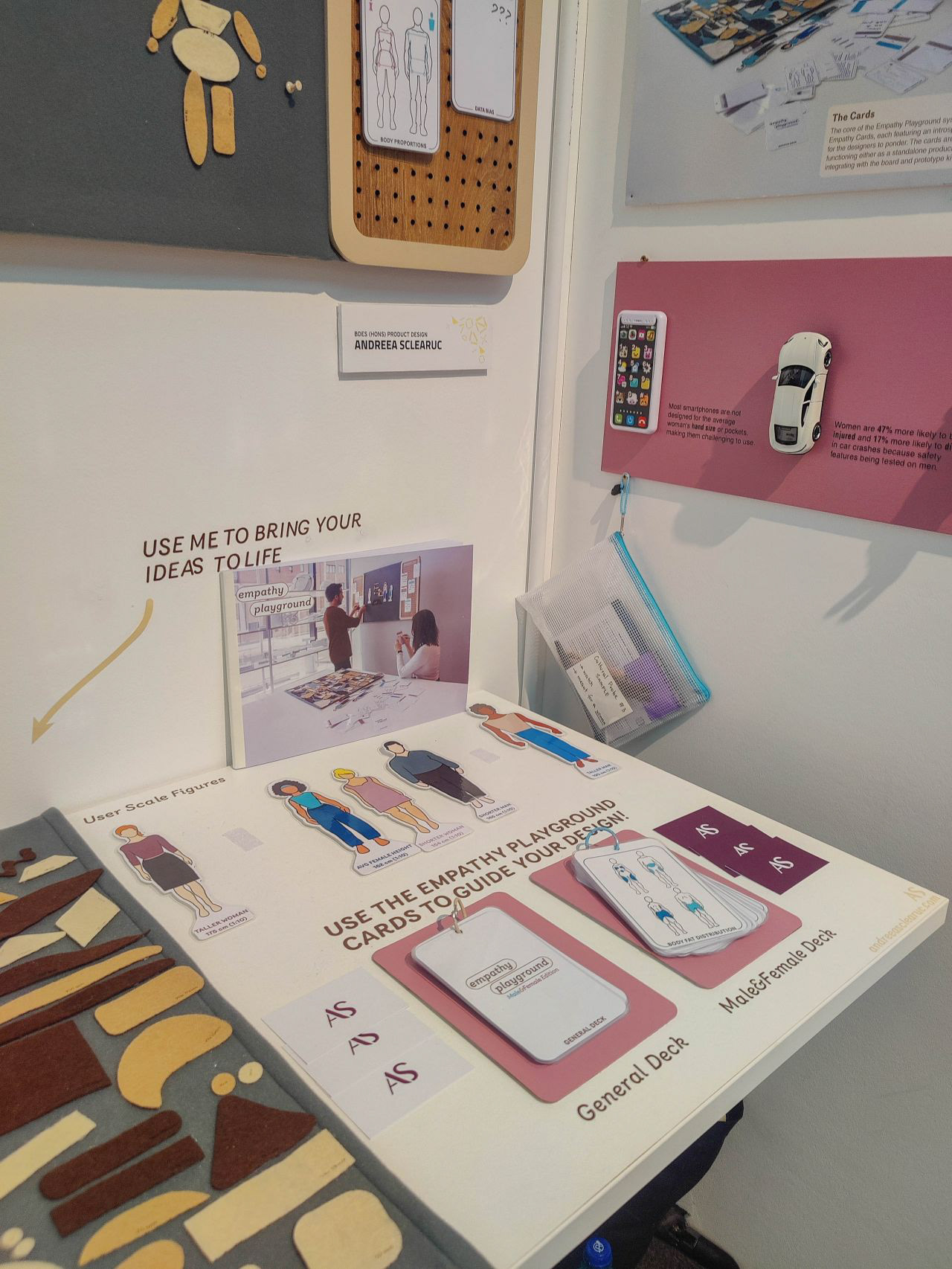
A new chapter with Bright Red Triangle
An exciting opportunity that emerged from these exhibitions was the chance to collaborate with Bright Red Triangle, the university's incubator, which expressed interest in a customised Empathy Playground system for their team and community.
The initial stage involved hosting a workshop to introduce the team to the system, as you see here. Currently, I am working closely with them to develop a tailored version that meets their specific needs.
